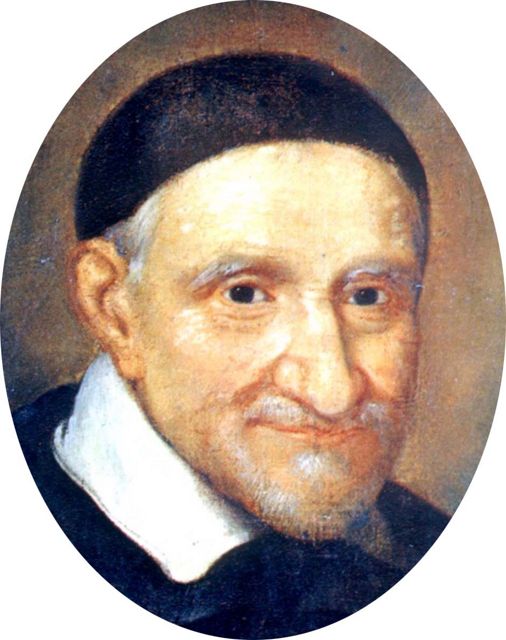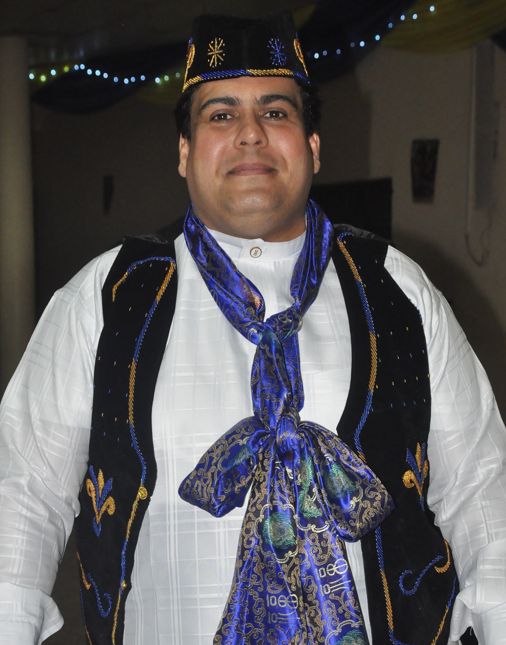Who we are
Welcome to the official webpage of the Society of St. Vincent De Paul, Abuja Central Council.
The Society is the official charity group of the Catholic Church and it caters to the poorest of the poor within the environs and jurisdiction where a Catholic church is located.
The Society of St. Vincent De Paul in any parish is called a conference; and Abuja Central Council oversees the activities of over 80 conferences within the Abuja council. Likewise, Abuja falls under the Abuja Metro Council.
The Abuja Central Council which is the Archdiocesan body of the Society that oversees the activities of the Conferences was established in 1993 through the efforts of Vincentians such as Bro. Vincent Duru, Sis. Margaret Egenti, Bro. Amajironwu, Sir. Peter Aliu, Sis. Ugbodaga, Sis. Oguleye and Sis. Jumai Kwanashie amongst others.
The Society is a worldwide lay movement, fulfilling uniquely one of the principal Apostolates of the Church. The members witness to their Christianity by bringing God’s love to the poor under the direction of a Spiritual Adviser.
The Society of St. Vincent de Paul was founded in France in 1833 by a group of students led by a law student, Blessed Frederic Ozanam. In his lifetime it grew to over 2,500 Conferences round the world. Today there are more than 80,000 conferences with over 800,000 members working in 136 countries throughout the world. cillum dolore eu fugiat nulla pariatur.
The patron Saint of the Society is St. Vincent de Paul. He died 173 years before the Society was founded, but was chosen as Patron because the name of Vincent de Paul is synonymous with Charity, charity or love is the same as saying God, because “God is love.” The Society is therefore rooted and founded in the love of God. Pope Paul VI, in an audience given to members of St. Vincent de Paul Society, acclaimed their word as “a great testimony of living Catholicism. You give witness to Christ in the Church of the Poor. The critic from outside is impressed. If he wants to understand you he must look for that mysterious religious vitality which animates your silent work of love.
The Society seeks before everything else, the personal sanctification of its members, which bears fruit in acts of justice and charity towards the Poor. For every Christian, but especially for the members of the Society of St. Vincent de Paul, the Poor person is a unique person of God’s fashioning with an inalienable right to respect. “The poor are our Lords and masters” St. Vincent. And those others, too, see you living the Gospel, those to whom you direct your steps, and whom you do not call by the name of poor, but by that of friends and brother.
The rule of the Society in unique, beautiful in its simplicity and service, operating under the inspiration of Jesus Christ Himself who said “I am the way the truth and the life, no one comes to the Father except through me.” (Jn. 14:6). “I give you a new commandment, love one another as I have loved you.” (Jn. 15:12).
Blessed Frederic Ozanam is the founder of the Society of St. Vincent De Paul in 1833. Since then the society has come a long way and has root in over 130 countries with its head quarters in Paris and headed by the Council General. Read more on the founder and the history of the society.
Our Founder
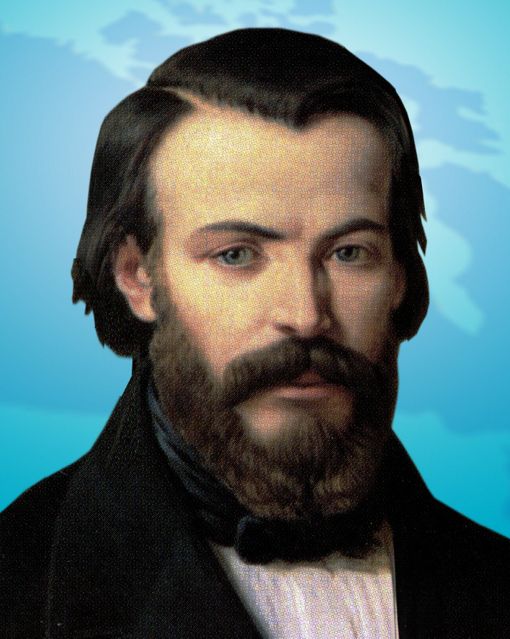
Blessed Fredrick Ozanam
Biography
Blessed Frederic Ozanam was the 5th child of a family of fourteen born to Dr. and Madam Ozanam on the 23rd April 1813. The Ozanams were a very prosperous, educated and religious French family. His parents taught him from his younger days the love of God and their deep sympathy with the poverty-stricken of the society.
They taught him to seek and to find Christ in the person of all those who were bearing the burden of social injustice. Having completed his schooling very successfully, his father decided to send Frederic to the Sorbonne University in Paris. On arriving in Paris, Ozanam entered the Law School. He was surprised to find that the Professors in the course of their lectures took every opportunity to attack Christianity, and Catholicism in particular. Ozanam objected to these attacks and being a committed person to his faith defended his Christianity.
One year later, that was 1834, membership had grown to over 100. Frederic Ozanam proposed that the work of the Conference of Charity be placed under the patronage of St. Vincent de Paul, the servant per excellent of the Poor, henceforth; the conference of charity adopted the name of “Society of St. Vincent de Paul.” Ozanam continued his studies, qualified as a barrister and was subsequently awarded Doctorate in Law and Literature. Because of his brilliant success he was offered many important appointments as a Lecturer and later as a Professor. Lacordaire called Ozanam “the greatest Catholic of his day.” He could communicate in seven languages. However, his heart was always with the Society of St. Vincent de Paul. Even if Frederic Ozanam held with great distinction a Professorial chair at the Sorbonne University of Paris, he still could find time along with the other members of the Society to visit, talk with, and assist the poor families who were showing so clearly the effects of poverty.
It was not the exciting discoveries of the scientific world of the time that riveted the attention of the brilliant Professor from the Sorbonne University but the sufferings of Christ in the Poor of Christ. Ozanam insisted that personal contact with the Poor was of fundamental importance. He insisted that each member of the society must visit a poor person or a poor family each week and it must be a work of love and unlimited kindness. He was also convinced that personal sanctification was of prime importance and that it was not enough to witness to Christ by charitable works but that the members should live closer to God in their personal daily lives.
Ozanam worked very hard all during his life. His health was not robust, so at the age of 40 he died at Marseilles on the 8th of September 1853, leaving a wife and one daughter. His body was conveyed to Paris and now rests in the crypt of the Carmelite Church. His tomb is a place of pilgrimage for Vincentians from all over the world. The cause for his beatification was opened in Paris on the 10th June 1925 at which his eminence the Cardinal Archbishop presided.
It advanced a step when Pope Pius XII signed the decree of the “Introduction of the Cause” on 12th January 1954. The next stage was completed in 1956 and the official title of Frederic Ozanam became “servant of God.” The beatification of Frederic Ozanam took place in Paris on Friday 22nd August 1997. We now have him called Blessed Frederic Ozanam by the Holy Mother the Church. The Society members and their friends throughout the world are now praying for an early canonization of Blessed Frederic Ozanam.

Our Patron
Vincent: A man touched by the finger of God’s own holiness, often referred to as the “Apostle of Charity.”
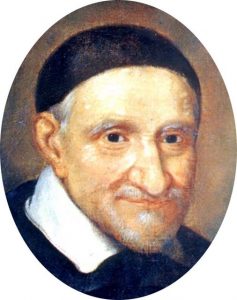
St. Vincent De Paul
Childhood
Vincent, the third of six children of his parents was born in Lands near Dax in South of France not far from Lourdes on the 24th April, 1581. His parents were very good Catholics, hard-working and concerned for the moral and spiritual training of their children. From childhood, Vincent learned to be generous and kind-hearted, especially to those in great need, His parents taught him that those who give to the poor give to God Himself.
Collaborations
Charity is a heavy burden to carry, and it soon became clear to Vincent that he needed others to help him in following the Gospel values and in alleviating the sufferings of the Poor.
Daughters of Charity
Vincent was “saturated with divine charity” and God acted through him. With the cooperation of Louise de Marillac in 1633, they founded the Daughters of Charity. They devote themselves entirely to the alleviation of the lot of the Poor; they proclaim the Gospel to them explicitly wherever possible, but always through the witness of their lives.
Conversion
“Our ways are not God’s ways.” Divine Providence was guiding Vincent along, even when he was going through a crisis of faith, which could be called “the dark night of the soul.” Having gone through this spiritual experience, which was the turning point in his life, Vincent found Christ in a new way, through the Poor. He now detached himself from his family, and resolved to spend the rest of his life in the spiritual and material relief of the poor.
Vincentian Community of Priests And Brothers
Vincent gathered together a few individual priests who felt a genuine love for the poor. In those early days they concentrated on Parish missions and retreats and preparing men for the Priesthood. In 1625, they formed themselves into a community and officially were known as the “Congregation of the Mission”, better known today as the “Vincentians.” The community developed and grew and today the Vincentian Priests and Brothers work in about 60 countries continuing the services and ideals begun by Vincent de Paul in the early 17th century. Among their many apostolates in seminaries, Parishes, Missions, etc, the Vincentians are often involved as guides and advisers to the Society of St. Vincent de Paul. In many countries including Nigerian the Vincentian Priests and experienced lay persons are the National Diocesan Spiritual Directors, whereby they can promote and share the spiritual heritage of St. Vincent de Paul within the Society.
The Charities
Involving the Laity Vincent discovered very quickly that the works of caring for the spiritual and physical needs of the poor were very great. He therefore involved many lay people in his projects of organizing relief. He appealed especially to the rich to manifest a concern and compassion for the sufferings of the poor by sharing their wealth with them. Vincent instructed these people to exercise their charity in a spirit of faith and hope and in imitation of Jesus Christ.
Since the time many catholic Action Groups have grown in the Church. The “Decree on the Apostolate of the Laity teaches that the laity are called by God so that by exercising their proper function and being led by the spirit of the Gospel they can work for the sanctification of the world from within, in a manner of leaven.” Certainly, the Society of St. Vincent de Paul is answering the call of the church in fulfilling their role as Vincentians.
Spirituality
“Give me a person of prayer and he/she can do all things” words of St. Vincent. Vincent had a deep spiritual life. He knew the Gospel intimately and therefore the spirit of the Gospels permeated his prayer, his works and all his interactions with people, the rich and poor alike. He had a deep devotion to the Eucharist the centre of his life and from here he drew his strength to love all mankind. Towards the end of his life, he would spend many hours a day in private prayer. In this way the love of God was poured into his heart every day and he was able to be “all things to all men in order to win all to Christ.” Vincent de Paul died in Paris on the 27th September, 1660. He was beatified on the 13th August 1729. He was canonized on the 16th June, 1737. Pope Leo XIII declared him Patron Saint of all works of Charity in the whole world, which in any way originated from him.
Vocation
Vincent was an intelligent young boy and his father sent him to College. He aspired to the Priesthood. One of his motives for this choice was to live comfortably and to be in a position to help his family. Eventually, Vincent was ordained a priest in 1600. At first he worked in the Parish Ministry. While working as a priest, a distant relation of his died bequeathing a legacy to him. Vincent had to travel to Paris to sign legal documents with the deceased relation’s solicitors. In Paris, and upon completing the formalities, Vincent decided to return to his station by sea. His journey by sea was the beginning of his sufferings and humiliations, as the ship in which he sailed was attached by pirates and he was mortally wounded and captured. Thereafter his captors sold him into slavery in Africa. In slavery he continued to change from one master to another until he was eventually sold to another French national who originally was a Catholic but later converted to Islam in Algeria. It was in the course of his suffering under this master that God intervened to reveal the identity of Vincent to this new master, who not only regretted having subjected him, a priest of God to such torture but also repented and granted Vincent his freedom.
This French national after granting Vincent his freedom returned to France and once more converted to Christianity (Catholic). During these years he underwent very great humiliations, difficulties, and sufferings of all kinds. Later Vincent was given important positions, Chaplain to Queen Marguerite in the Royal household, and later to the aristocratic Gondi family. This gave him the opportunity of seeing and experiencing the standards and values of the rich in contracts to the sufferings of vast multitudes of the people of France who were poor and deprived.
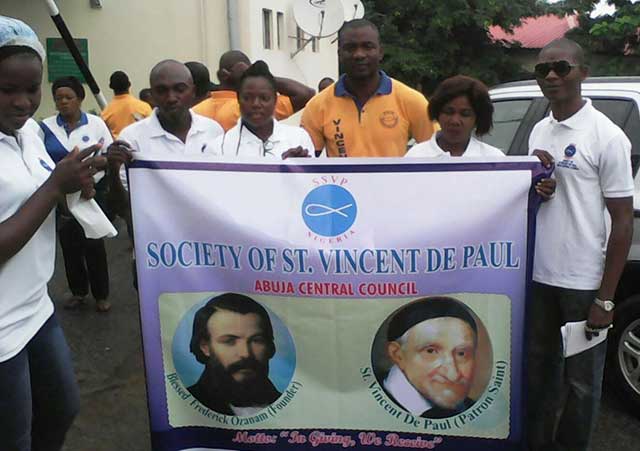
What we have achieved
In our various conferences in the Central Council, we have been able to reach out to the needy and the less privileged ones within and around our various communities. As Jesus said we would always have the poor in our midst. View our activities.

